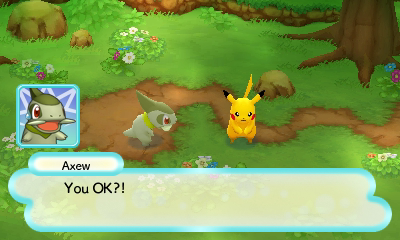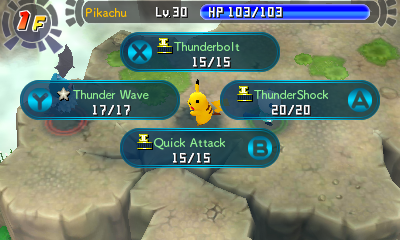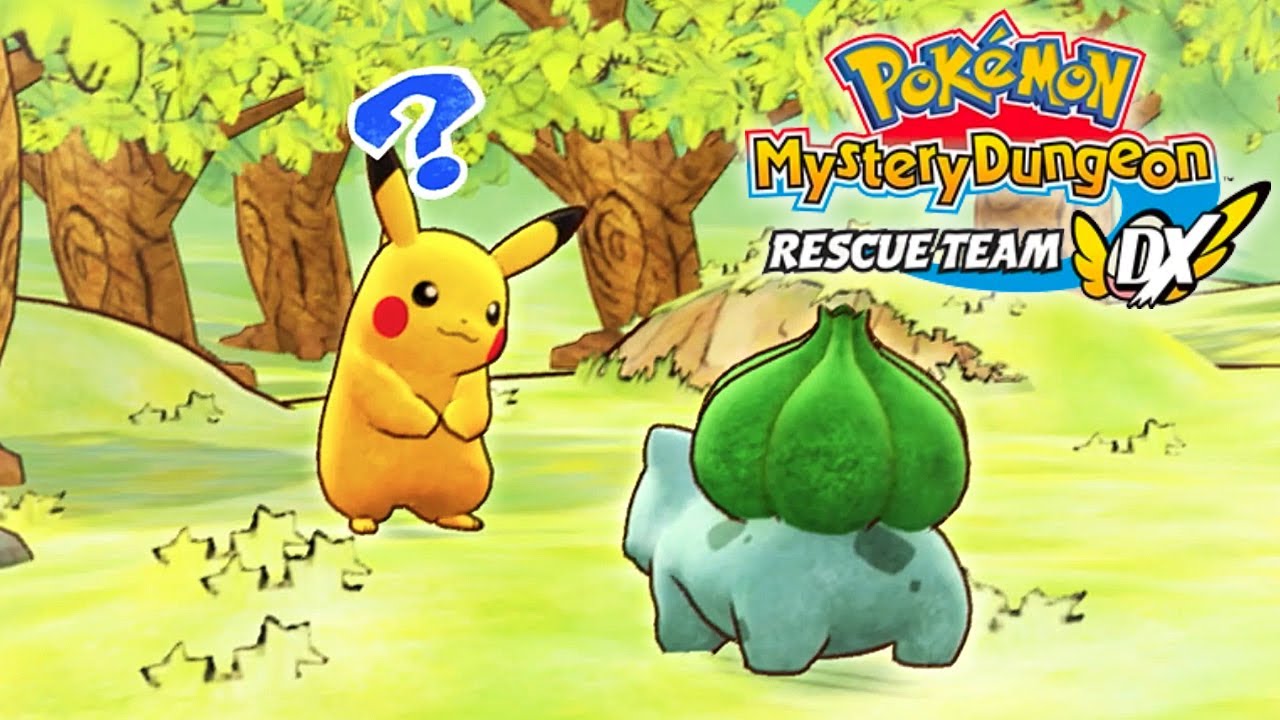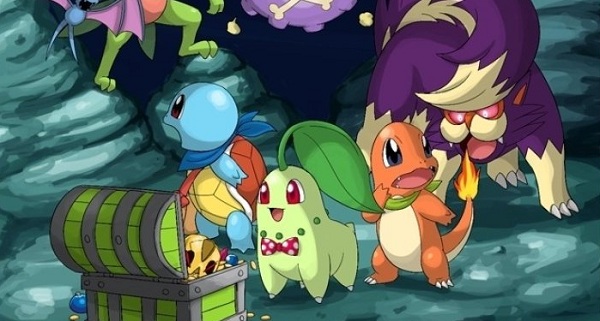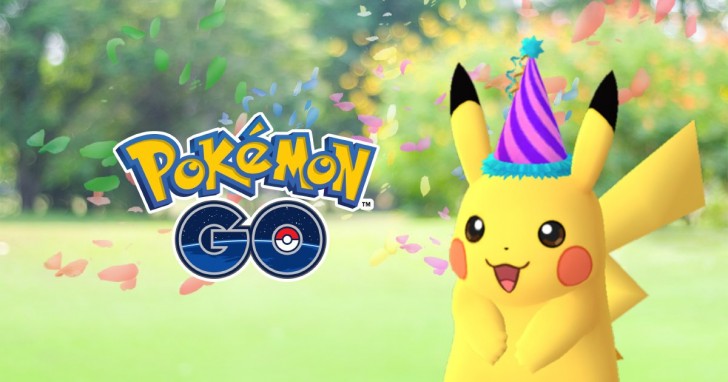
I’ve always admired the way the team behind Pokémon thinks up new directions for the series to go in. What started out as an adventure RPG with strategy and pet-raising elements thrown in has since evolved into a series where some titles have significantly different core gameplay. For example, Pokémon Snap saw you taking photographs, Pokémon Pinball emulated the arcade experience of playing on a Pokémon-specific table and Learn with Pokémon: Typing Adventure teaches you er, typing. It shouldn’t be surprising, then, that the games would someday turn to dungeon-crawling; indeed, some sections of the core Pokémon titles do feel very much like dungeon-crawlers. But the Mystery Dungeon games aimed to put these mechanics front and centre, with another difference being that you play as a Pokémon rather than a trainer trying to catch them all.
The latest game, Gates to Infinity, isn’t much different, other than featuring new Pokémon and a shiny new coat of paint. Your character is given the same backstory as the previous Mystery Dungeon games – that is, you have been transformed into a Pokémon with amnesia. This time, you have 5th generation Pokémon to choose from: Oshawott, Tepig, Snivy, Axew and, of course, the mandatory Pikachu. Players of the previous games will note that this is a significant step-down from the 16 characters available. The quiz previously used to determine which Pokémon you will play as has also been done away with, so it’s now a case of making a quick choice. You’re also able to choose your partner Pokémon and from there the plot of the game quickly makes itself clear. Your character has had a dream of a large, sinister Pokémon threatening the land, but hasn’t any clue where or how to start investigating. As a result, he decides to tag along with his partner, who buys a plot of land and aims to explore it for the mysteries it might hold and to develop it into a community for other Pokémon. Surprisingly, Gates to Infinity‘s story was better than expected. Poképark 2: Wonders Beyond, which had a similar concept, had rather cliché writing, yet Gates to Infinity has a solid narrative and likeable characters. The character portraits that accompany the characters as they speak do a wonderful job as well, highlighting a wide range of expressions without being too obnoxious. Dare I say it: I even forgot I was playing Pokémon sometimes. The plot is the most compelling reason to keep playing, but that isn’t too hard to achieve given how boring and repetitive the actual gameplay is.
Like the previous Mystery Dungeon games, Gates to Infinity is a roguelike, featuring randomly-generated dungeons and turn-based actions. Unfortunately, the randomised nature of the dungeons suck all character that they might have had out of them, leaving you with areas that you won’t want to explore (unless you’re hunting for items), but rather push your way through as quickly as possible. Did I mention that each dungeon is comprised of several floors? The monotony of the level design also makes it very easy to forget that even movement is turn-based, although this soon becomes clear when you see enemies creeping up behind you. And once they see you, it’s almost impossible to escape.
Combat is no better, with both parties trading blows until one collapses. Similar to the core Pokémon games and the PP system, each of the characters in your party has four special moves, each with a limited amount of uses. (As a throwback to these games, you can also learn new ones when you level up, which is quite cool.) Your team mates’ AI isn’t up to scratch however, and will often waste these moves. There are options to give special commands to them, but none of them are adequate enough for your battle strategy to make sense. Whether you want to be conservative or you don’t have any other choice, your characters also have a basic tackle ability, which is horribly weak. Add to the fact that dungeons are often quite narrow, meaning only one of your team members can do battle with an enemy at a time, and you have a recipe for long, tedious battles that last longer than they should. This being a roguelike, albeit with a Pokémon skin, Gates to Infinity simulates permadeath rather well. Upon losing a battle, you can make use of the 3DS’s Streetpass function in the hopes of getting a Revival Seed. If you’re unable to find one, you are returned to the beginning of the dungeon, will lose some items and, more often than not, have to retrigger elements of the area that will help with progression. Sure, this isn’t as brutal as some other roguelikes out there, but considering the younger audience this game is targeted towards, it will likely frustrate a lot of them.
The twenty-hour story mode aside, Gates to Infinity has a number of other features as well. The community you work to build with your partner opens up new areas such as training dojos and mini-game halls. There are, of course, also side quests which yield various rewards. For those hungering for more content, there is also DLC available via the Nintendo e-Shop. Interestingly, the game also gives you the ability to generate your own dungeons by using the 3DS’s camera to scan round objects. It’s impressive that the game has so much replayability, but unfortunately this seems to be a case of quantity over quality.
However, at the end of the day, the game’s enjoyable story, community-building aspect and gorgeous 3D Pokémon models are overshadowed by the dull environments and the poor combat system. It’s a shame because as the third in the Mystery Dungeon series, Gates to Infinity has had quite a while to make things right. Inevitably though, there will be another Mystery Dungeon game in the future; let’s hope that one hits the mark.
Compelling story | Community building aspects | Looks gorgeous
Tedious gameplay | Boring dungeons | Bad AI

